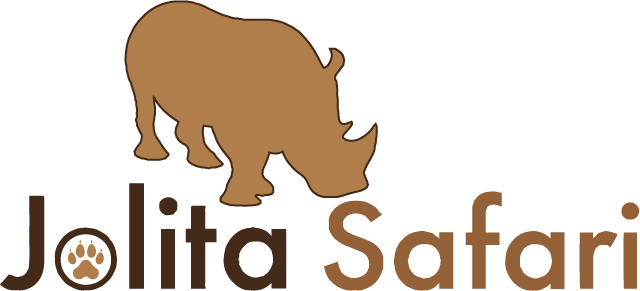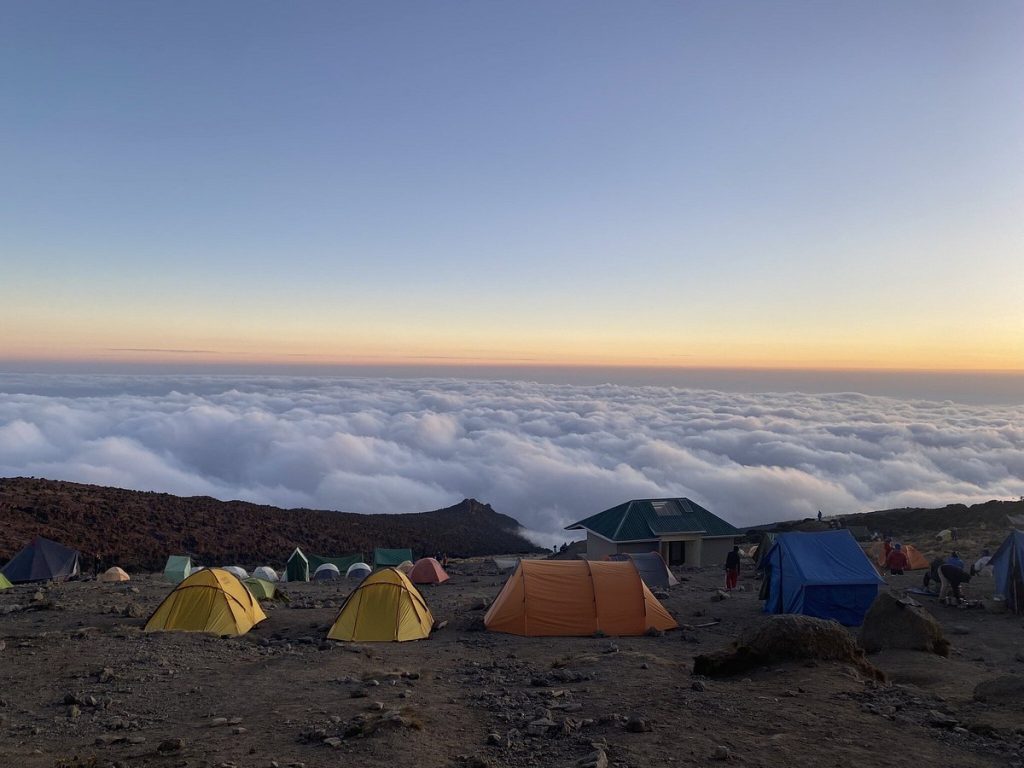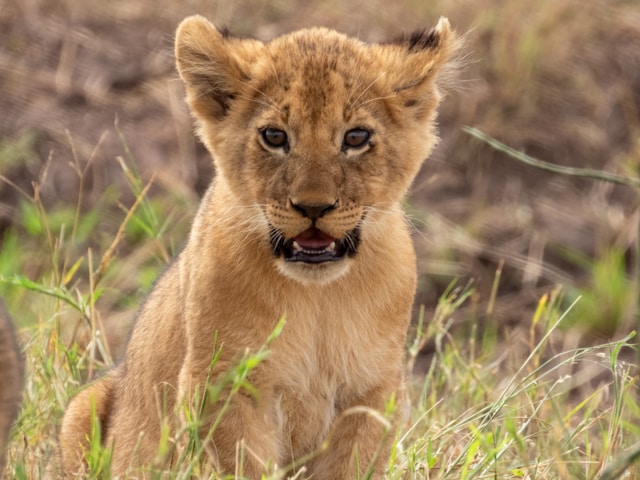BEFORE DEPARTURE
TRAVEL TERMS
Our travel terms form the basis of the agreement you make with Jolita Safari when you book a trip. Read our travel conditions.
PAYMENT FOR THE TRIP
Upon receipt of the order, we start booking your program. When the program is 100% confirmed, we send out a booking confirmation.
Together with the booking confirmation, an initial deposit invoice will be sent. Jolita Safari is NOT responsible for international flight tickets.
The amount is due for payment 14 days after the invoice date, unless the need to pay for plane tickets requires a shorter deadline.
The remaining amount is invoiced 60 days before departure and is due for payment 14 days after the invoice date. If the trip is booked 60 days or closer to departure, the full amount will be invoiced to the customer with due date within 14 days and sent together with the booking confirmation.
PASSPORT
It is the customer’s responsibility to ensure that the passport is valid, undamaged and meets the criteria for the journey. The passport must have a validity date of at least 6 months on the last day of travel. There must be at least 2 free pages in the passport. Check that there is no damage to the passport.
VACCINATION AND TRAVEL ADVICE
Contact your local vaccination clinic, health nurse or GP for vaccines.
TRAVEL INSURANCE
The customer is responsible for taking out travel insurance before departure. If you are going to stay at altitudes above 4,000 meters above sea level, you must check whether your insurance covers it. Take your insurance certificate with you on your trip.
CURRENCY
Take 2-300 US dollars with you. Visas are purchased on arrival or when passing through a border crossing and must be paid for in US dollars. Feel free to bring small bills such as 1, 5, 10 USD, these are fine to use for tips. Local currency can be withdrawn from ATMs in the cities, in rural areas it may be difficult to withdraw local currency.
DURING THE JOURNEY
BAGGAGE ON AIRPLANE
International flights
Baggage rules vary from company to company. Familiarize yourself with your airline’s baggage rules before departure.
Domestic flights
Baggage weight on domestic flights varies from 15 kg – 23 kg. Familiarize yourself with your airline’s baggage rules before departure. Make sure you have essential items in your hand luggage; passport, int. vaccination card, plane ticket, insurance, credit card, money, prescriptions, medicine, camera, binoculars and other high value items.
VISAS
Jolita Safari recommends that a visa be purchased on arrival in Tanzania. Visa applications are granted on the plane or on arrival at the airports and at the border station. Cost of visa is 50 US$ (as of 01 January 2024) Visa cannot be paid with VISA or Mastercard, visa must be purchased in cash in US dollars. The customer is responsible for familiarizing himself with the country’s visa rules and visa costs before departure.
TRANSPORT
Your private guide, who is also a driver, will be standing with a name plate in the arrivals hall. It can often seem confusing and difficult to find your driver as there are many people with different nameplates, take your time and find your driver. We do not put other travelers in the same car as you, the safari is best when you travel with your family and friends.
The cars we use in Tanzania are the 8-seater Toyota Hiace with 2-wheel drive, the 6-seater Nissan Urvan with 2-wheel drive and the 6-seater 4WD Toyota Land Cruiser. All cars are equipped with safety belts, radio communication, safari hatch, drinking water and you have a skilled driver during your stay. Several of our cars have sockets and charging options.
SAFETY
Jolita Safari, partners, our tour leaders and local guides will use their experience and knowledge to avoid accidents. Jolita Safari cannot guarantee that unfortunate situations cannot occur. You are visiting a country with a foreign culture and as a participant on our tours you must show respect and not behave reprehensibly or rudely. A journey to a country in Africa means that the traveler must accept a different reality than in our Western world.
During the trip, you are obliged to comply with the rules and regulations issued by the public authority, the organizer or the organizer’s representatives, including the rules and regulations that may have been issued by the individual hotel, lodge, transporter, etc. Rule changes may occur without Jolita Safari having received opportunity to inform you as a traveller.
FOOD AND DRINK
The days you are on safari always include breakfast, lunch and dinner. The food at the accommodation is of a high standard, but it is still good to take precautions. The food we eat locally is well cooked and or fried, and thus safe to eat. Wash your hands before meals. Drinking water must be boiled or bought bottled.
In most accommodation it is customary to serve buffet meals. The buffets tend to contain both gluten-free and vegetarian options.
If you require a special diet during your stay, please inform us of this when booking. All beverages are paid for by the customer directly on the spot unless otherwise agreed.
TIPS
Tips are part of the culture in Tanzania. Although tipping is voluntary, it is expected that you tip in various situations to thank for good service and a job well done. We recommend that you tip your safari guide on the last day when you leave him at the airport. Remember that tips should reflect the work done. Most hotels/lodges/campers have a “tip box” at the reception. Tips are then distributed to everyone who works on site. Usual tip on safari days is US$10 per person per day.
PAYMENT LOCALLY
The currency in Tanzania is the shilling (TSH). 1 USD $ is worth 2550 Tanzanian shillings as of 1 January 2024. Click here for updated rates.
The most common credit cards are becoming more and more accepted, but still bring some cash in dollars, as a start. In the cities, you can withdraw shillings with a credit card in an ATM terminal. In the countryside and in the parks there are no opportunities to withdraw cash, so it is important to bring cash when traveling from the cities.
Most accommodation and restaurants accept payment with VISA and Mastercard, often with a 5% fee. It is also possible to use US dollars as payment. A good rule of thumb is to pay in the currency the price is stated in. When using another currency, a poor exchange rate is often used.
LANGUAGE
The official languages in Tanzania is Kiswahili. At hotels and tourist attractions, English is used. There are a total of over 120 tribal languages in Tanzania.
LOCAL CUSTOMS AND DRESS
The regular Tanzanian is perceived as positive, helpful and outgoing. When you meet a Tanzanian, it is customary to shake hands, and then follow a small greeting ritual “How are you, your family” etc. It is not usual to introduce yourself until after you have exchanged greetings. Brash behaviour, visible drunkenness, swearing/bad language and disrespectful accusations can be taken very seriously – especially by the older generation. As a tourist, it is therefore important to be aware that parts of the mainland Muslim community. Tourists should be careful to follow the dress code and avoid drinking alcohol in places other than restaurants that are licensed to serve alcohol. Special precautions should be taken during Ramadan. When moving in public places, women should always wear clothes that cover their shoulders, knees and navel.
CLIMATE
The climate can roughly be divided into 3 zones. Along the coast, the outlying islands and the area around the Great Lakes, there is a hot and humid tropical climate; often with humidity of up to 90%. The high plains have a temperate climate, with temperatures down to 15 degrees at night and even lower the higher you go above sea level. At the top of Kilimanjaro, the temperature can drop to 10 to 15 degrees below zero.
Low-lying plain areas inland have a hot and dry climate. The warmest time is November to March with variations from approx. 25 to 35 degrees. There are two rainy seasons in Tanzania; a short rainy season in the period from November to January and a long rainy season that starts in April and lasts until May/June. In the short rainy season, there is more sporadic rainfall, only short showers, while there is heavy rainfall combined with thunderstorms in the long rainy season, most rain in April. Around Kilimanjaro there may be some showers regardless of the rainy season, it is the mountain that contributes to this.
ELECTRICITY
Most lodges and campers are not connected to the usual electricity network, they use solar cells and generator power. The generators are often only used for a few hours in the morning and in the evening. This means that there may be limited time to charge mobile phones, tablets, PCs and cameras.
Current voltage is 220 Volt, with 3-pin sockets. There may be some voltage variations and sometimes power outages. Where there are no charging facilities in the room/tent, in most cases it will be possible to charge at the reception. Several of our cars have outlets and charging options while you are out and about.
MOBILE COVERAGE
GSM coverage in Tanzania is relatively good. Most of the national parks have good coverage – and the same applies to Zanzibar. There may be individual “pockets” without coverage.
GEOGRAPHY AND ENVIRONMENT
Tanzania’s landscape is very varied. The country has large mountain areas, savannas, lakes, and a coastline with both coral reefs and mangrove forests. Africa’s highest mountain, Kilimanjaro, as well as the largest African lake, Lake Victoria, are located in Tanzania. The country has a subtropical climate.
There are two rainy seasons: One from March to May, and one from November to January. The country has a very rich flora and fauna, and is known, among other things, for the black rhinoceros and the great animal migration in the Serengeti. Approx. 39% of the land areas in Tanzania are protected in the form of national parks or game reserves. Despite this, Tanzania is losing 3,500 square kilometers of forest areas a year, due to the expansion of agricultural production. Other environmental problems in the country include desertification, soil erosion and the destruction of coral reefs along the coast. Tanzanian authorities are also struggling with illegal hunting in the national parks.
HISTORY
For several centuries, Tanzania, and especially the coastal areas, was strongly influenced by Arab culture through trade and seafaring. An Arab trading station was established on Zanzibar, and from 1698 Zanzibar, which makes up the islands of Unguja and Pemba, was subject to the Arab Sultan of Oman. Unguja is the main island that is referred to daily as Zanzibar. Tanzania has been under both German and British rule during the colonial period. In 1886 Tanzania, or Tanganyika (the mainland of Tanzania), became a German protectorate. Zanzibar retained its independence until 1890 and then came under British rule. Germany’s defeat after World War I led to Tanganyika being given to Great Britain as a mandated territory.
In 1961 Tanzania became independent, and the following year a republic was established where Nyerere was elected as the country’s first president. Zanzibar first became independent in 1963, and the following year Tanganyika and Zanzibar joined and formed a union called the “United Republic of Tanzania”. In 1967, President Nyerere adopted a socialist program for the country’s development. His party was for a long time the only party allowed. Drought and decline in food production, however, led to the country introducing a multi-party system. Nyerere relinquished power to Ali Hassan Mwinyi in 1985, but retained control of the ruling party, Chama cha Mapinduzi (CCM), as chairman until 1990. One-party rule ended in October 1995 when Tanzania held its first ever multi-party election, but CCM won the election by a wide margin with Benjamin Mkapa elected president on 23 November 1995. In December 2005, Jakaya Mrisho Kikwete was elected as the country’s fourth president for five years, succeeded in November 2015 by John Pombe Magufuli.
SOCIETY AND POLITICS
Tanzania is a union of mainland Tanganyika and the islands of Zanzibar. Zanzibar has self-government. The archipelago has its own constitution, government and parliament, which makes decisions in matters that only apply to Zanzibar. In the capital, Dodoma, sits the Union Parliament, which passes some laws that apply to all of Tanzania, and some to the mainland in particular. In Zanzibar, most people are Muslim, while the mainland population is mainly Christian or belongs to traditional religions. In the country’s constitution, however, a distinction is made between state and religion.
The Revolutionary Party (CCM) has been in power in Tanzania since independence in 1961. Although a 1992 amendment to the constitution allowed multiple parties, the opposition is fragmented and has little power. CCM has an authoritarian character, and functions more as a power apparatus than a people’s movement. The president is the country’s supreme leader, and has a lot of power. He/she appoints the prime minister and the government, and can veto bills in parliament. The relationship between Tanzania and Zanzibar has for a long time been characterized by dissatisfaction. The population of Zanzibar wants greater independence, while Tanzanians on the mainland believe that they should be satisfied with the existing union agreement.
ECONOMY AND TRADE
Although Tanzania has experienced relatively stable economic growth in recent years, the country is still one of the world’s poorest. Most Tanzanians work in small-scale agriculture. Important industries are mining – particularly the extraction of gold -, tourism and other service industries. After a major economic crisis in the 1980s, the country’s authorities changed economic policy and introduced a market economy. In recent years, mining in particular has led to growth in the economy. However, the country’s economy is characterized by corruption and heavy bureaucracy, which inhibits development.
The economic growth has not benefited the entire population, and there are large differences between the poor and the rich. Because Tanzania’s income from imports is less than export income, the country has had to take out large foreign loans to avoid a trade deficit. Although parts of the loans have been written off, the debt to foreign countries amounted to around a third of GDP in 2010. In addition, the country is dependent on aid. The international financial crisis in 2008-2009 led to new budget problems.



